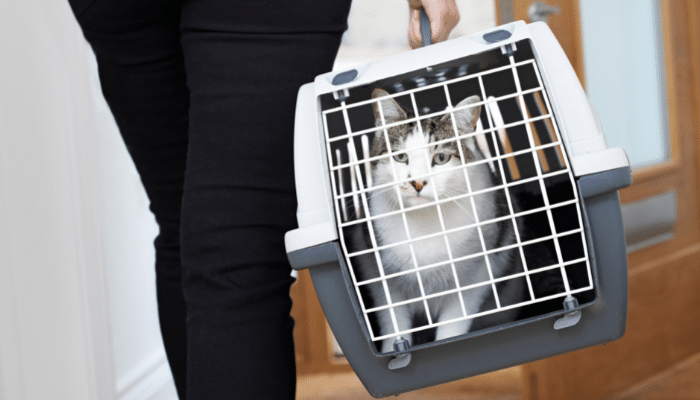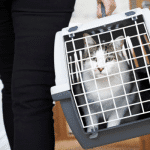The revised version of the new Government’s Renters’ Rights Bill has been introduced in the Commons. This Bill aims to give renters more stability and security in the process of renting homes, potentially leading to longer tenancies and more positive experiences.
The previous Government’s iteration of the Bill (the Renters Reform Bill), began as a white paper in June 2022, legislating for reforms in the private rental housing sector, with a goal to foster beneficial provisions for renters that may give them a better deal, including abolishing “no fault” evictions.
Amongst other significant changes to the law relating to rented property, this Bill would given tenants the “right to request” the keeping of a pet in the property. For a nation that prides itself so frequently on being full of animal lovers, the UK poses quite a challenge to pet owners seeking to rent housing in the private sector. It is commonly cited that in 2021, only 7% of private landlords on Zoopla listed their property as pet-friendly, and despite best efforts among action groups in the animal sector, that number does not seem to have demonstrably increased. The Bill would give tenants the right to request from the landlord the ability to have a pet, and it would ensure that landlords do not unreasonably withhold consent to this request.
As with any law, the determination of what would constitute a ‘reasonable’ or ‘unreasonable’ excuse is generally unclear, and would remain so until these rights are put into practice and challenged. Although the Bill gives a few examples of reasonable excuses, they are solely related to cases in which the landlord has to answer to a superior landlord. The Bill acknowledges that the tenant would be able to challenge unfair decisions, though of course we simply do not have much guidance on what such decisions might look like, or examples on either side of a judgement. Existing guidance mentions that further guidance on this may become available, for landlords.
As those in the animal law community well know, one of the most persistent sticking points that landlords have had in the crusade for more pet-friendly housing is the potential for damage caused by pets. This concern is addressed in the Bill, which allows landlords to require insurance that covers pet damage. If an insurance policy lets a landlord breathe more easily, knowing that there is money to cover damage, then hopefully this would lead more wary landlords to allow pets. However, the Bill’s stated intent is that such extra insurance would give landlords reassurance that any damage would be the responsibility of the pet-owning tenant to prevent or resolve – an allocation of responsibility that was never in question.
Whilst all of this seems like some long-awaited progress, we have concerns regarding whether the Government has given due regard to the welfare of relevant animals as sentient beings. From an animal welfare perspective, if more private rental properties are willing to accept pets, more sentient animals would stand to benefit, from, for example, more people being able to adopt pets, and current owners being less likely to be forced to give up their animal. However, how this Bill is drafted seems to favour the former and not the latter, because tenants would have the right to request to keep a pet once the tenancy is established and there is a lease with this implied provision. Meaning, if they already had a pet, they do not appear to have the right to negotiate for permission for the pet with the landlord before signing the lease.
Although it is important for potential future pet owners to be able to adopt animals into their homes, protections for existing pet owners are crucial for animal welfare. As it is currently written, the Bill favours the acquisition of new pets over the welfare of existing pets. To have lesser protections for existing pet owners in the rental process – besides being supremely unfair – means a greater chance for welfare concerns to arise (as the Animal Sentience Committee noted in their critique of the previous iteration of this Bill). Pet owners, who decide to secure the housing and then request that their pet join them, might need to find someone else to keep their pet for the time being, thus breaking the all-important bonds that companion animals form with their person. And there is no guarantee that the landlord would approve their request down the line, meaning they could be stuck in a lease and unable to reunite with their pet. For those who choose not to risk that scenario, they may decide to rent lower-quality housing (with ramifications for animals’ well-being in addition to their own), or even give up their pet altogether (possibly leading to the pet’s abandonment or euthanisation). In the past, we have seen pet owners end up homeless due to their understandable refusal to part with their beloved pet.
As for those tenants who do sign the lease, after they exercise their right to request a pet, the guidance is unclear on what might happen next. One interesting aspect of the bill requires that the tenants’ written request include a description of the pet for which consent is sought. Depending on the level of detail required, this could mean that a) only tenants with an existing pet, one they could describe in detail, would be eligible – bringing our aforementioned welfare concerns to the fore; or b) that prospective pet owners would have to make some decent progress into the adoption or purchasing process before even knowing if they could finalise the transaction. And, as we’ve said, what adjudicators would take to constitute an ‘unreasonable’ denial on the part of the landlord is unclear. Furthermore, there is, as yet, no guidance to support landlords in their determination of how to make a reasonable decision after receiving such a request.
This Bill’s passage may promise some benefits for animal welfare, with more properties becoming pet-friendly, but given that this Bill aimed to reduce the number of pets being given up when pet owners cannot find suitable housing, “there is a mismatch between this aspiration and the provisions of this bill,” as the Animal Sentience Committee said.
By Randi Milgram





![R (on the application of Highbury Poultry Farm Produce Ltd) (appellant) v Crown Prosecution Service (respondent) UKSC [2020] 39](https://news.alaw.org.uk/wp-content/uploads/2021/10/News-Blog-Image-25-440x264.png)













